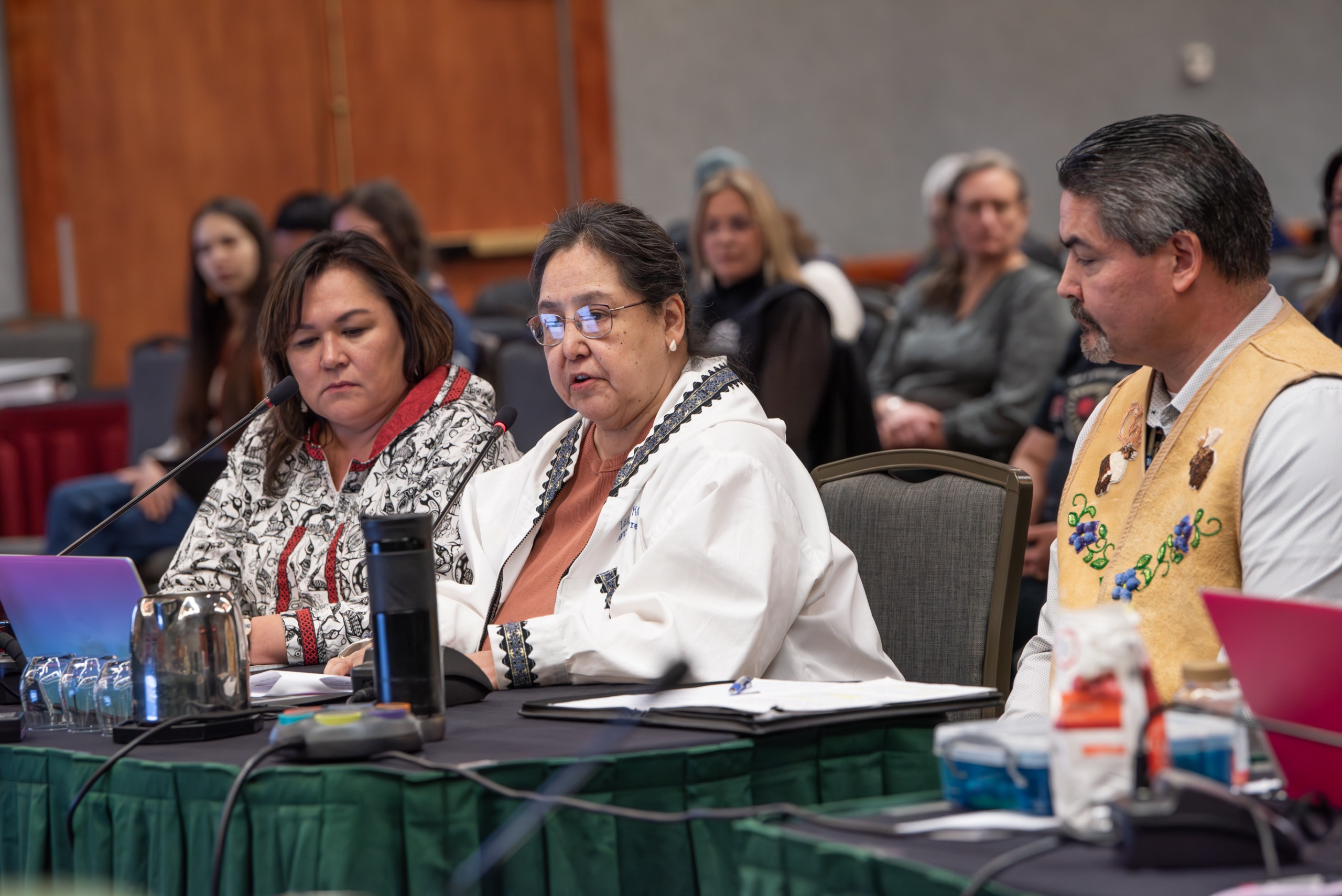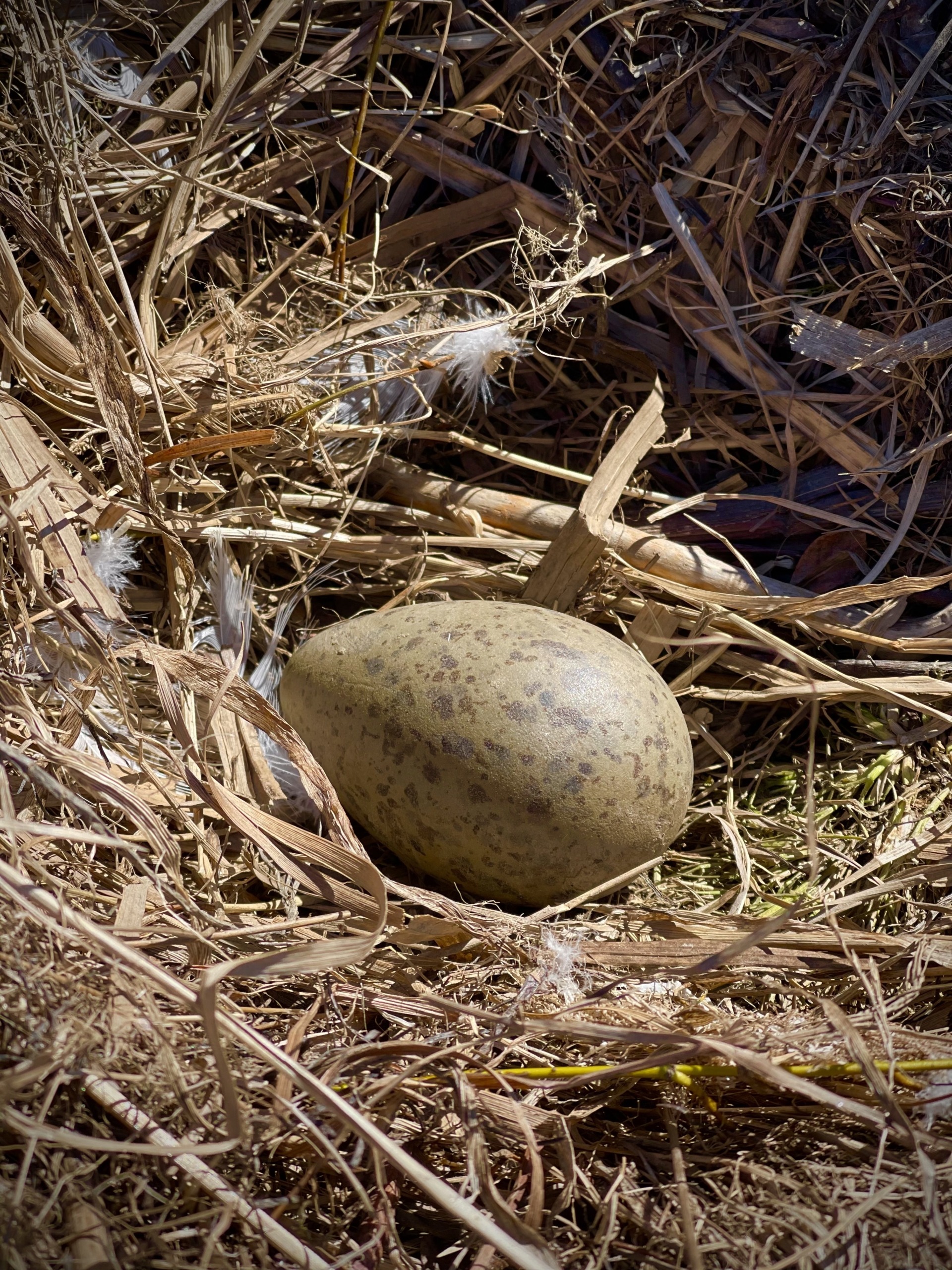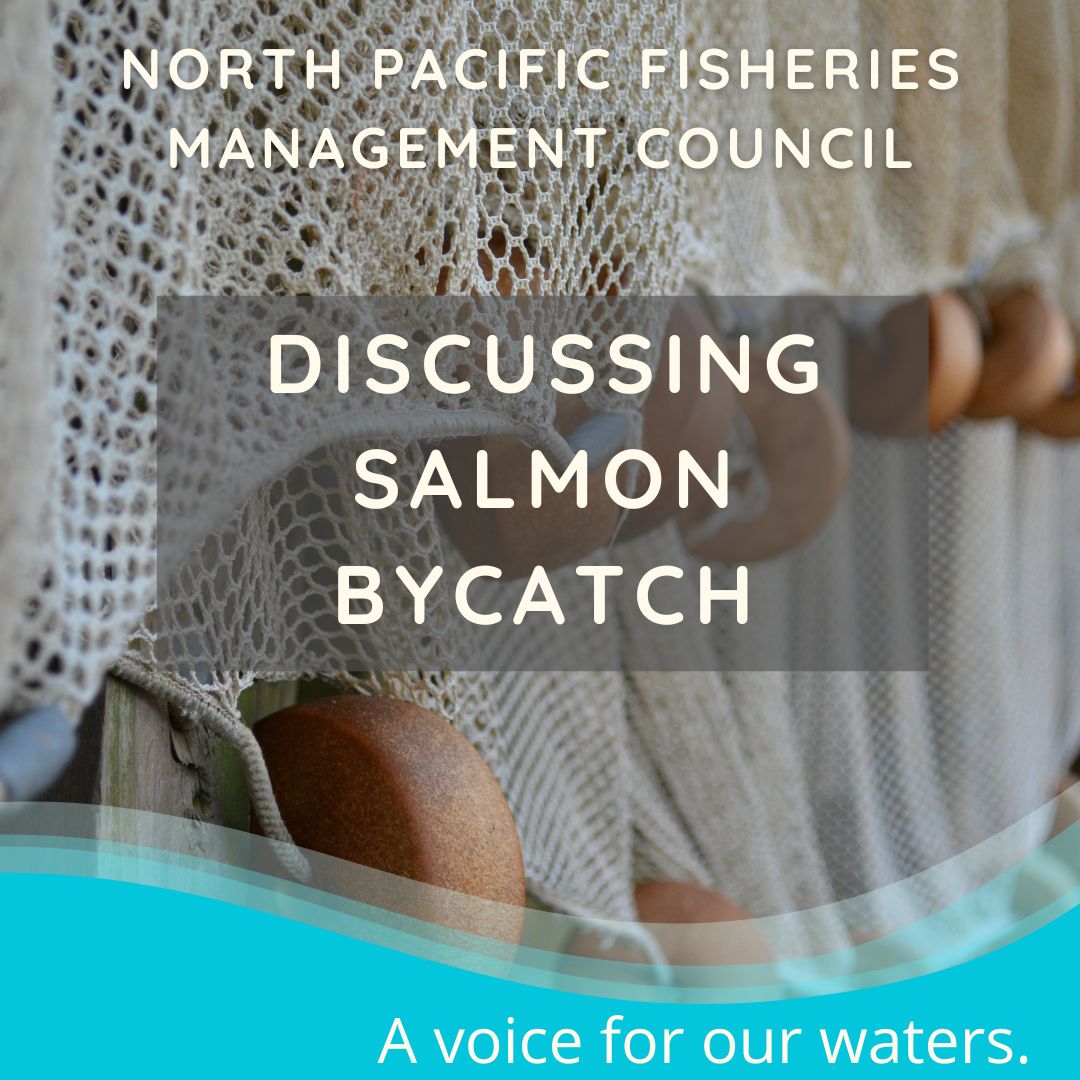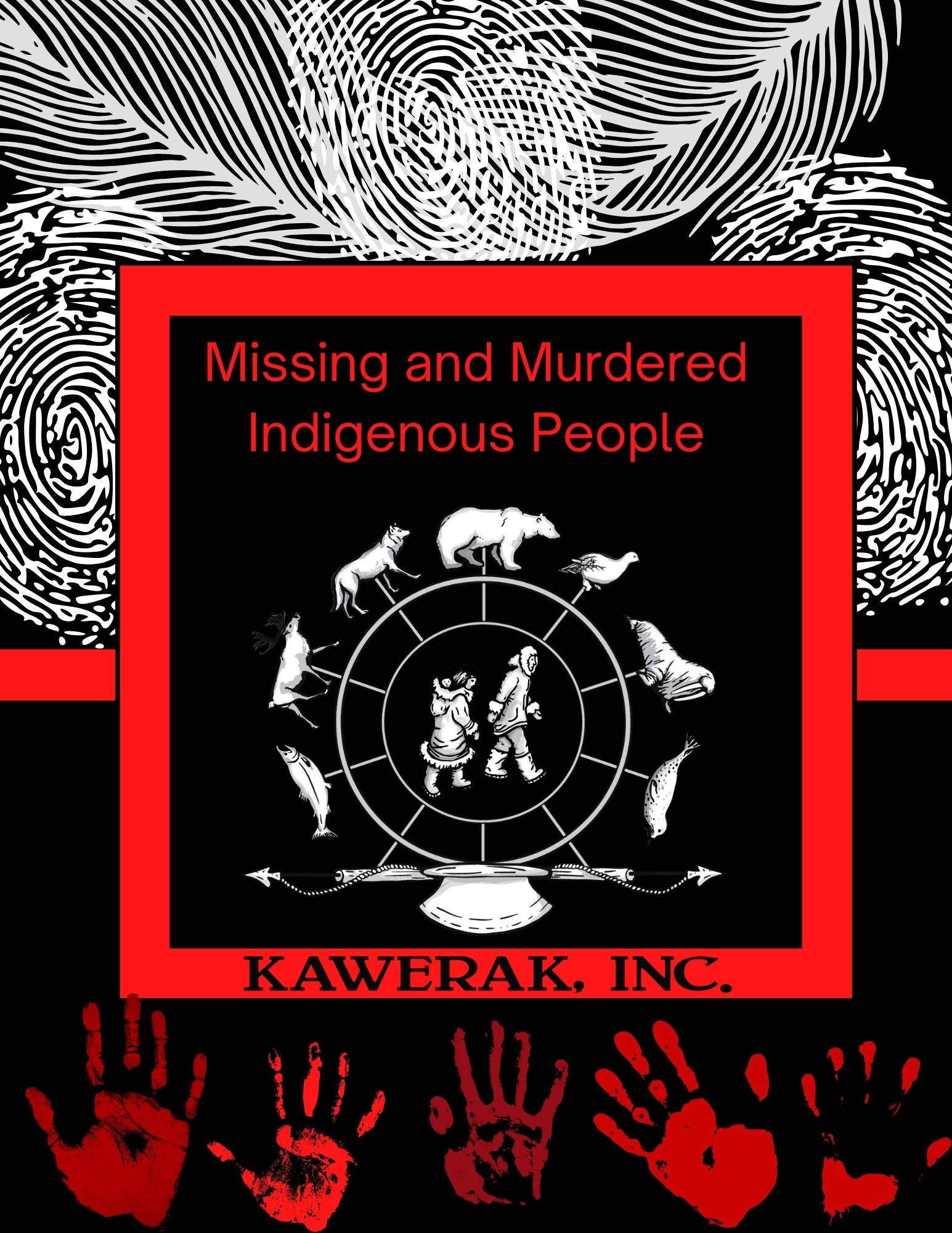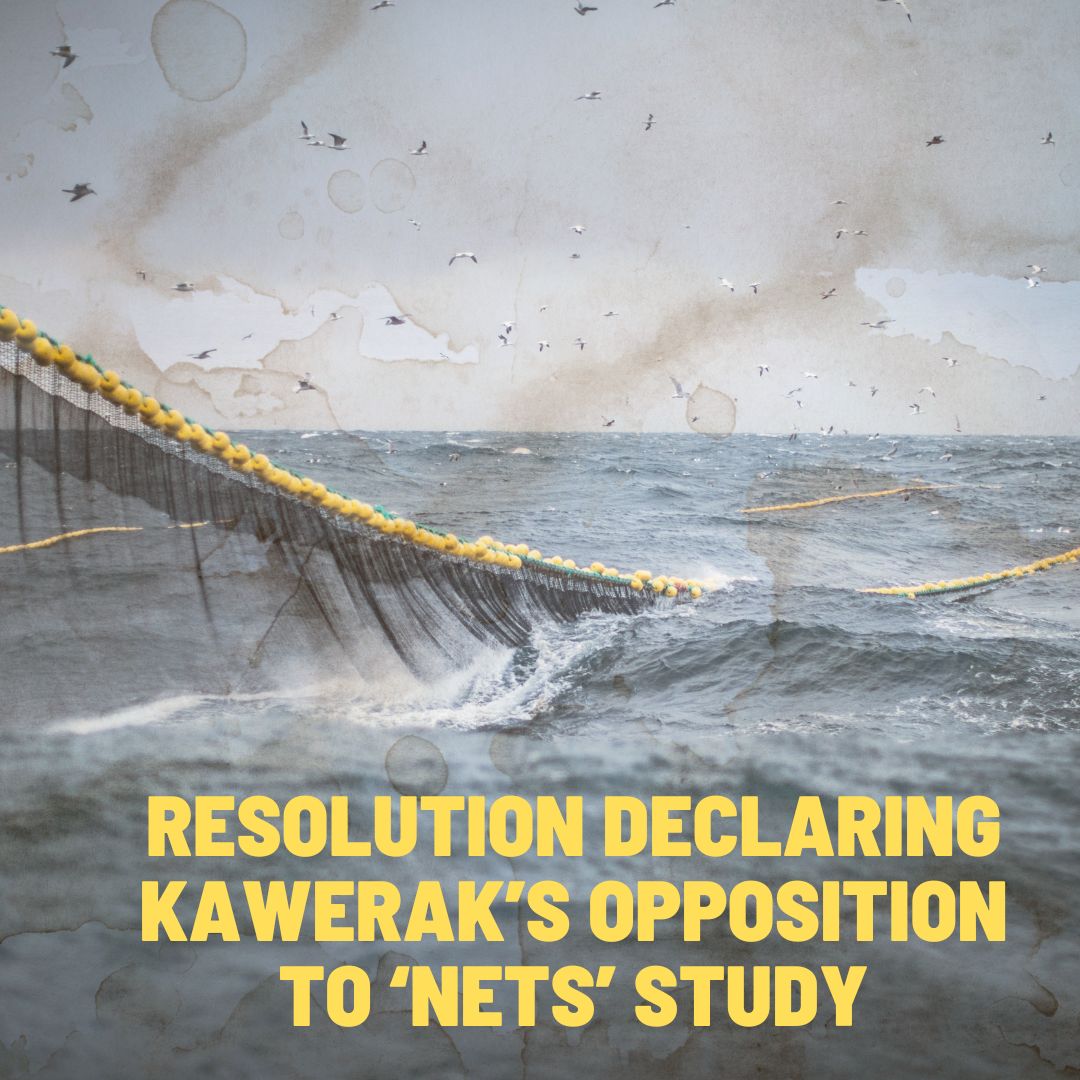Leaders of Tribal Consortia that represent 113 Tribes from Western and Interior Alaska are pushing for strong measures to reduce chum salmon bycatch in the pollock fishery. On April 6th, Melanie Bahnke (President of Kawerak), Brian Ridley (Elected Chief and Chairman of Tanana Chiefs Conference), and Vivian Korthuis (CEO of the Association of Village Council Presidents) provided joint testimony at the North Pacific Fishery Management Council (NPFMC) meeting that was held April 1-9 in Anchorage. One of the major issues that the Council addressed was the issue of chum salmon bycatch.
Bycatch is the unintended harvesting of fish when other fish species are being harvested. Chum salmon are taken as bycatch in large numbers in the Bering Sea pollock trawl fishery – often in the hundreds of thousands. There is currently no cap on this bycatch, and all bycaught chum salmon die. On average, almost 20 percent of this bycatch is chum salmon of western and interior Alaska origin (including Norton Sound). Salmon are a prohibited species for catching in the fishery; bycatch is also known as Prohibited Species Catch (PSC). At this meeting, the NPFMC deliberated alternatives being considered for measures to reduce chum salmon bycatch. The history of bycatch waste and problems with chum salmon returns are an important issue for Alaska Native people and residents of rural Alaska that depend on salmon as a food source and the continuance of Alaska Native culture.
In October 2023, the NPFMC crafted a range of alternatives for consideration to address this issue. These alternatives were analyzed in a preliminary draft Environmental Impact Statement at this April 2024 meeting. Many people providing comment to the Council and it’s Advisory Panel expressed concern about chum salmon bycatch and dwindling salmon returns, and noted that alternatives being considered were not adequately responsive to the salmon crisis and to Tribal knowledge and concerns. Eva Dawn Burk, who sits in the Tribal seat on the Council’s Advisory Panel, put forward a motion that revised these alternatives, calling for analysis of bycatch caps using lower bycatch limits and striving for higher abundance in rivers, and also considering time/area caps and closures to address the problem. After discussions and amendments, the motion passed at the Advisory Panel by a vote of 21-0.
The Council considered the Advisory Panel’s motion, took a variety of reports, and listened to many testifiers on the issue. The importance of the issue was evident from the number of people and organizations that provided written comment and oral testimony; for example, there were 323 written comments and 100 in-person testimonies provided to the Council. Here is some of the testimony provided by Kawerak, TCC, and AVCP leadership:
Melanie Bahnke (Kawerak): “We have been experiencing chum declines spanning the last three to four decades, including having to resort to a Tier II fishery. After decades of Federal and State management of the resource, this is our reality. We would like to see an expansion in the alternatives. Most importantly, we want to see the range of PSC limits the Council is considering dramatically reduced. What has been presented falls short of addressing chum declines meaningfully […] Every salmon counts, especially now. […] All waste is disrespectful to the resource and we should strive toward zero waste. Many people have been stuck on zero subsistence fishing repeatedly while the fleet wastes thousands. Why is that okay?”
Brian Ridley (Tanana Chiefs Conference): “Conservation continues to rest on the backs of Tribes. Tribes are willing to give up fishing if it means our future generations can fish. We teach our people to take only what you need without waste. The bounties our people receive are treated with respect so that they will continue to return in abundance, compared to the waste and disrespect of salmon as bycatch by the commercial fishing industry. […] If left unaddressed, our people are facing a health and wellness emergency that threatens our way of life.”
Vivian Korthuis (Association of Village Council Presidents): “Our communities rely on the Yukon and Kuskokwim rivers and the Bering Sea for food. Salmon is our way of life. We are salmon people. It is our cultural identity. Right now, our cultural identity is under attack. Our subsistence way of life is being questioned. We will not sit silently and watch this happen. The situation is dire. […] If the North Pacific Fishery Management Council can’t or won’t help us, then just tell us straight up. […] The status quo cannot be continued. Our communities are suffering and hungry.”
The Council passed a motion which had elements of its Advisory Panel’s recommendations, but did not go as far or broad as the Advisory Panel recommended in terms of Tribal and salmon conservation concerns and requests. The revised set of alternatives will be analyzed in coming months, and Tribal organizations will continue to be engaged on the issue.
To listen to the full testimony by the three leaders, you can listen at https://youtu.be/vAclW8ldX0k. To listen to the full recordings of the meeting in April you can view at https://www.youtube.com/@npfmclive4407/videos. The following NPFMC website provides some information about how the Council manages salmon bycatch: https://www.npfmc.org/fisheries-issues/bycatch/salmon-bycatch/ . To find out more about this issue and getting engaged about it, you can contact the Kawerak Social Science Program (email: socsci@kawerak.org ; phone: 907-443-4273).
Photo courtesy of Association of Village Council Presidents

